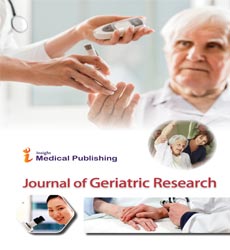Does the acute treatment with benzodiazepines affect suicide risk in old?
Abstract
Anxiety (among several other symptoms) has been identified in one prospective study as associated with suicide risk in depressed patients early in treatment. It has been suggested that treatment of anxiety in depression wit sedative/hypnotic agents, especially benzodiazepines, may decrease suicide risk. Sedative/hypnotic agents (S/H) including benzodiazepines also have depression and uninhibitory properties which might increase suicide risk. This review addresses these potential risks (and weigh it with any benefits) with regard to suicide. Pertinent medical literature will be reviewed in depth. The review did not reveal any evidence that using benzodiazepines (or S/H) as an early adjunct to antidepressant treatment of anxious, depressed patients (or otherwise) decreases their suicide risk. There is considerable evidence that S/H produce depressant and/or uninhibitory affects in a small proportion (perhaps 5%) of people who take them. Toxicological data on suicides indicate that a majority of people who commit suicide are under the influence of S/H chemicals (including alcohol) at the time of suicide. Alternatives to sedative/hypnotics should be used if early adjunctive treatment for anxiety in depressed patients is thought to be indicated
Anxiety (among several other symptoms) has been identified in one prospective study as associated with suicide risk in depressed patients early in treatment. It has been suggested that treatment of anxiety in depression wit sedative/hypnotic agents, especially benzodiazepines, may decrease suicide risk. Sedative/hypnotic agents (S/H) including benzodiazepines also have depression and uninhibitory properties which might increase suicide risk. This review addresses these potential risks (and weigh it with any benefits) with regard to suicide. Pertinent medical literature will be reviewed in depth. The review did not reveal any evidence that using benzodiazepines (or S/H) as an early adjunct to antidepressant treatment of anxious, depressed patients (or otherwise) decreases their suicide risk. There is considerable evidence that S/H produce depressant and/or uninhibitory affects in a small proportion (perhaps 5%) of people who take them. Toxicological data on suicides indicate that a majority of people who commit suicide are under the influence of S/H chemicals (including alcohol) at the time of suicide. Alternatives to sedative/hypnotics should be used if early adjunctive treatment for anxiety in depressed patients is thought to be indicated
Open Access Journals
- Aquaculture & Veterinary Science
- Chemistry & Chemical Sciences
- Clinical Sciences
- Engineering
- General Science
- Genetics & Molecular Biology
- Health Care & Nursing
- Immunology & Microbiology
- Materials Science
- Mathematics & Physics
- Medical Sciences
- Neurology & Psychiatry
- Oncology & Cancer Science
- Pharmaceutical Sciences
